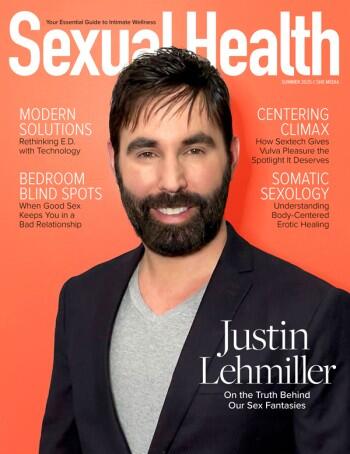As the pleasure products industry becomes more competitive, companies should look to protect the toys and tech they spend time and money to develop. Intellectual property (IP) laws can provide that protection, so long as particular qualifications are met and proper steps are taken. To navigate, you’ll need to understand what types of IP exist and ask yourself (and your attorney, if you have one) several questions as part of an analysis that I’ll explain here.
The first question you’ll want to explore is whether your product includes novel innovative technology. For example, does the technology do something that has never been done, or does it include some apparatus or software that previously did not exist. This evaluation must be conducted in light of prior art — issued patents and published patent applications (from around the world), other products on the market, published articles, and generally whatever else is available “out there” already.
If you believe the technology is novel, you’ll then need to ask the next question of whether the technology is “obvious” based on prior art. This is a subjective issue. A way to help you think about it though is to consider whether parts of products described in previous patents and/or included in products on the market could be combined to create your idea? For example, does your product include: component “A” shown in a patent, combined with component “B” shown in a product on the market, as well as component “C” disclosed in a research paper? If so, then you ask would there be a motivation to combine? Would someone of ordinary skill in the engineering arts think to combine them? If the answer is “no” to these kinds of questions, then your product is likely not “obvious.”
If you determine that the technology is new and non-obvious, you may want to pursue a utility patent. A professional patentability search may be a good idea ahead of time to confirm. Novelty, non-obviousness and usefulness are the qualifications to receive a patent, and a search can help in confirming the answers to the questions described above. In the U.S., utility patents are applied for at the U.S. Patent and Trademark Office (USPTO). Utility patent protection lasts 20 years from your filing date.
The next question to ask, regardless of whether the technology is novel and non-obvious, is whether the industrial design of the product is novel and non-obvious. The analysis is similar to that for a utility application, but instead of looking at tech, you’re evaluating the appearance of the product. If the qualifications are met, a design patent can be pursued. A design patent protects ornamental features, and not features designed in a particular way due to their function. In the U.S., design patents are applied for at the USPTO and last 15 years from the issue date.
Moving on to yet the next question you’ll ask is whether the product’s design is a creative work. The design of a product can be protected as a sculpture via copyright law. Copyright is an automatic right if something creative meets the qualification of being an “original work of authorship” (basically, created rather than copied) and fixed in a tangible medium (as a product, photograph, recording, etc.). However, registration with the U.S. Copyright Office provides many benefits over an unregistered copyright. Accordingly, it is almost always advisable to file for a registration. Copyrights in the U.S. are applied for at the U.S. Copyright Office, and the term varies according to certain circumstances, but I can tell you, it’s a very long time!
Note that you have one year from your first public disclosure or sale (with some exceptions and caveats) to file for a valid patent application. So, it is vital to try to keep your invention confidential until a patent application is on file. If this is not possible, then you’ll want to file within the year from your first disclosure or sale (whichever is first). If your product has been on the market or published for more than a year at this point, patent protection may not be available, but you can still file for a copyright registration.
Finally, you’ll want to ask the questions, (1) does the name you’ve given the product do more than merely describe the product, and if so, (2) is it different from (rather than “confusingly similar to”) names used by others for pleasure products? These are the qualifications for trademark rights. If the answer is yes to both of these, a trademark registration can be pursued to protect the product’s name. Trademarks, like copyrights, are automatic, but again, registration is really key to enjoying the full benefits of protection. Trademarks are applied for at the USPTO, and can last indefinitely, so long as proper renewals are filed at the required times.
Patent and trademark protections are national in scope. So, if you want protection outside of the U.S., you’ll need to file in those countries or regions. Copyright registrations issued in the U.S. can be enforced in many other countries abroad because of international treaties, so multiple registrations are not usually necessary.
This analysis should help you navigate IP possibilities when you develop a new product. While not all products will be protectable by every form of IP above, many will be able to qualify for at least one. Any type of IP protection will be a deterrent to others to copy your products, so always evaluate which could be applicable, and then decide based on a cost versus benefit assessment.
Maxine Lynn is an intellectual property (IP) attorney with the law firm of Keohane & D’Alessandro, PLLC. She focuses her practice on prosecution of patents for sex technology and more. Through her company, Unzipped Media, Inc., she publishes the Unzipped: Sex, Tech & the Law blog and the Sex Tech Patent IndeXXX bulletin at SexTechLaw.com.








